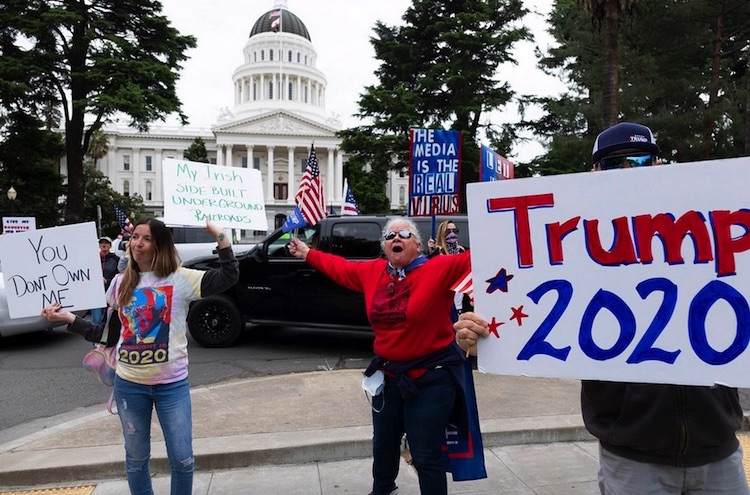Viewpoint by Cees Jan Hamelink*
This article was originally published on Other News, a vehicle for “voices against the tide” and is being reproduced with thanks.
AMSTERDAM (IDN) – As a scientist it is of course gratifying for me to hear that government policy on Covid-19 takes science seriously. And it is gratifying when press conferences of the prime minister and other authorities refer to scientific research. However, if it is not immediately mentioned by whom these studies were carried out and by whom they were critically assessed, I, as a scientist, become restless.
Especially because I know from my own experience that governments and scientific research are often not happy partners. Much of the policy-relevant scientific research produced is often stored in desk drawers all over the world, unless the results support an already established management course.
Science and political policy-making live in other worlds. Politicians are looking for quick and unambiguous answers. Science is better at asking questions than providing answers. In the case of the Covid-19 crisis, science is speechless. Not only does it have no answers to the secrets of the virus, but also to the questions about the economic, psychological, educational and cultural issues that are now arising as a result of the measures that are supposed to prevent its spread.
Lack of clarity
Moreover, science is not suitable for unequivocalness. It lives by complexity and differentiation. In politics, it’s a good aim to reach a consensus. In science we make progress precisely because we constantly disagree with each other. In the process of scientific research, scientists draw different conclusions from the same material. In science we accept – always only temporarily – a combination of theoretical constructions that are constantly bombarded with fundamentally new insights. The core of science is that every theory can be refuted. The forum of science is not a sociable and like-minded association.
Politicians want to be sure that all swans are white, while science persistently searches for the black swan. This means that while political policy-making is in a hurry, science needs patience. Science is a long-term matter and has to deal with many uncertainties. The most important scientific discovery of the 20th century is how little we know despite the promises of the Enlightenment. But what about that mentioned scientific underpinning of the measures now taken? It is simply not there.
Current policy is based on the advice of experts who may have academic degrees or university positions, but who are not science. Their opinions – however honourable they may be – are not scientifically subject to the independent review of critical third parties. Experts operate in a grey area between science and politics. Experts can get away with incomplete and insufficiently verified figures on, among other things, corona death rates and the risk of infection in young children.
Reputational damage
They can rely on models borrowed from London Imperial College without too much damage to their reputation, without critically analysing the presuppositions of these models and without wondering what the College’s data is based on. Experts may not lie awake to an estimate of Covid-19 victims in England that dropped from 500,000 to 1,600 within a month, but scientists have sleepless nights. Scientists have a harder time of it. Although peer review is not always a sufficient guarantee of completeness and validity in science, as a scientist you do run the risk of colleagues catching you for carelessness, poor theoretical or statistical underpinning or tunnel vision.
It is good to listen to experts but at the same time not to see them as representatives of scientific knowledge. They often only have limited specialist knowledge, which in the case of Covid-19, moreover, turns out to be insufficient to fathom the behaviour of the virus. Let alone that it is sufficiently solid to predict anything about it.
Moreover, since Covid-19 is a larger issue than just a virological-epidemiological problem, a motley group of social experts should discuss the disruption of society and its possible recovery. It would also make sense – without giving it too much scientific weight – for experts from my field to talk to it. They could say something about the sad quality of government information, such as the misuse of language (‘the new normal’), the condescending and paternalistic tone, and the disturbing lack of psychological and sociological insight into the behaviour of individuals and groups in society. . .
The contributions of experts may provide interesting insights and television images. Leave science out of it for the time being. It patiently searches for the black swan. [IDN-InDepthNews – 10 May 2020]
* Cees Jan Hamelink is a Dutch academic known for his work on communication, culture, and technology. He is Emeritus Professor of International Communications and Emeritus Professor of Media at the University of Amsterdam, Professor in Management Information and Knowledge at the University of Aruba; and Professor of Media, Religion and Culture at the Vrije Universiteit Amsterdam.
Photo: Demonstrators filled the sidewalk and part of 10th Street in Sacramento during the “Operation Gridlock” stay-at-home protest at the Capitol Monday, April 20, 2020. Photo by Andrew Nixon, CapRadi
IDN is flagship agency of the International Press Syndicate.
facebook.com/IDN.GoingDeeper – twitter.com/InDepthNews

